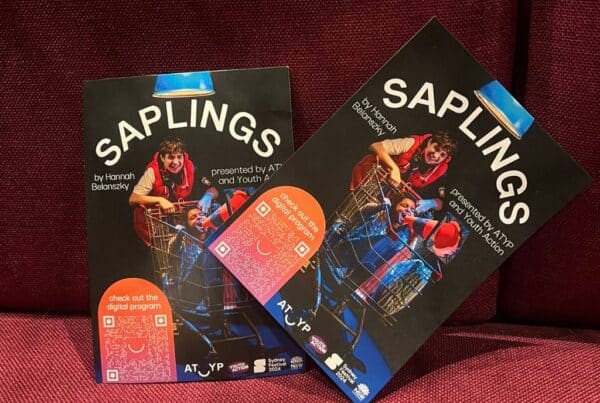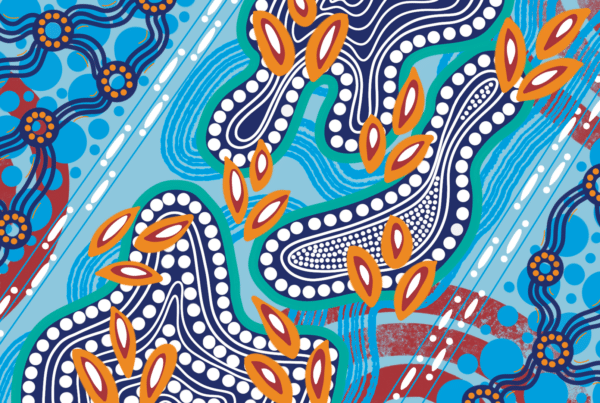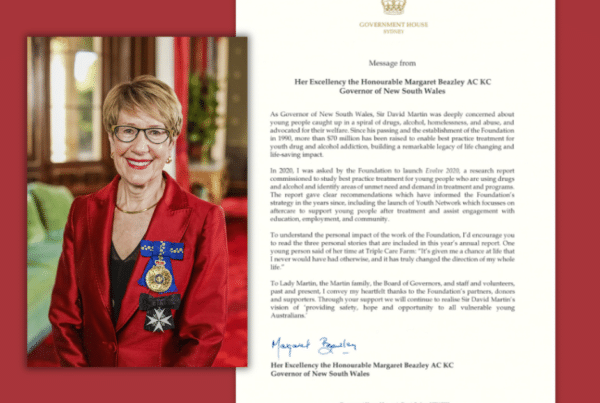When individuals and groups are passionate about an issue, be it local sporting opportunities, environmental causes, or social justice issues such as helping disadvantaged young people, they engage with it, understand its place and impact on our community and they act quickly.
I always think of the Margaret Mead quote – “Never doubt that a small group of thoughtful, committed citizens can change the world; indeed, it’s the only thing that ever has”.
That engagement, understanding and commitment to action can come in many forms. For the Farm it is primarily through volunteering and philanthropic investment. People’s willingness to give time and money to help young people they will never meet is inspiring philanthropy. These philanthropists bring about real change to the lives of young people challenged by addiction, homelessness, mental illness and social disconnection.
Philanthropic support enables Triple Care Farm to provide an innovative and responsive service to young people. The Farm has been providing services to help youth in crisis for almost 30 years. In this time, the program has evolved to better meet the needs of young people. Philanthropic support – which comes without restrictive conditions – enables flexibility and has ensured that the Triple Care Farm program can rapidly respond to the changing needs and complexities that young people face. For example, when the Ice Epidemic changed the issues that young people presented with at the Farm, the freedom and flexibility of philanthropic funding immediately allowed the Farm team to react as required, changing the intake process and altering the support provided in the first few weeks, enabling young people still going through late withdrawal to settle into the program.
It also enables program innovations and ‘additional’ elements and opportunities to be provided to Farm students. For example
- A sport and recreation program which helps young people recover their health and learn new ways of having fun – without drugs. Or an arts program that enables young people to express and then deal with issues and emotion. Potentially hard things for Government to agree to fund in a limited funding environment, but key elements of successfully helping young people escape addiction.
- For those people who have been to Triple Care Farm, the breathtaking piece of land on which the farm is situated – which is a key element of student’s rehab experience – was donated by the Fairfax Family almost 30 years ago. They saw a need and took action. Without that generosity and vision, there would be no Farm!
- More recently, the commitment of $1m of philanthropic investment was a contributing factor in the Federal Government providing $2m towards the building of David Martin Place. The vision of philanthropic donors in that way was leveraged to bring in additional funding.
These program aspects – all essential elements to the Farm’s unparalleled success in helping young people escape addiction – are unlikely to have been possible in a predominantly Government funding model. While Government support is greatly appreciated – and we hope that State and Federal Governments continue to address youth addiction through the National Ice Strategy and NSW Drug Package – movement is often slow, innovation is hard and funding is generally tied to short cycles and short term goals that do not allow for innovation in response to changing needs. Problems have often become cross generational and socially embedded before the government action arrives. In addition, Government funding can change with Government or policy changes whilst philanthropy is long term, constant and less reactive.
Philanthropy, being already connected and informed, understands and then activates before social problems spill out into frontage ink. Philanthropy is an investment, creating value that will continue to save the lives of young people into the future. It has been a blessing to see the pleasure that philanthropy has brought Farm donors over the years. They know how their support has changed – and saved – young lives, and when that ‘social return’ and joy comes through philanthropic investment, it is something to cherish.





